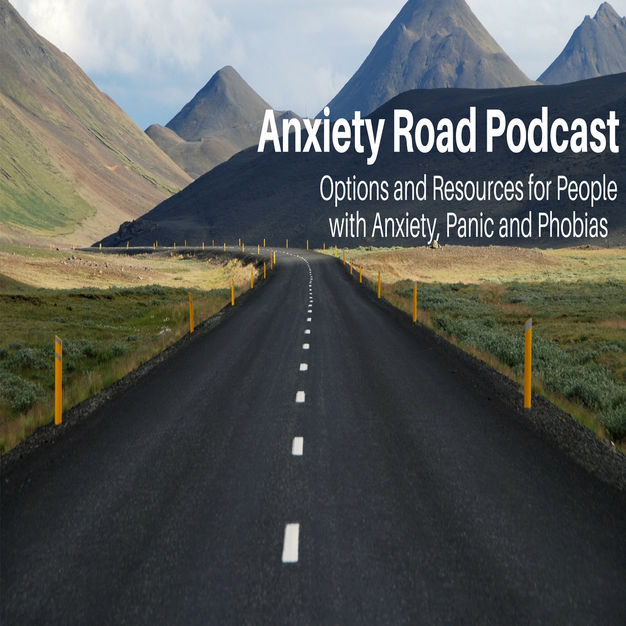
Anxiety Road Podcast
Gena Haskett
This is the Anxiety Road Podcast, the involuntary journey in finding treatment options for people that have anxiety and panics attacks with side trips into related mental health disorders.
- 4 minutes 51 secondsARP 373 Jaw Clenching aka Bruxism
The medical term for this is called bruxism. It is when a person grinds, gnash or clench your teeth and jaw bone. We are going to have a lot more people doing this in the year to come.
This is a pebble in the road on the condition and resources you can use to help you make decision about your health. If you need support contact the National Suicide Prevention Lifeline at 1-800-273-8255, the Trevor Project at 1-866-488-7386 or text “START” to 741-741. Resources Mentioned: The Johns Hopkins Medicine site has an explainer about Bruxism that talks about who is at risk, the causes and treatment options. American Academy of Sleep Medicine (AASM) has a page on Understanding the relationship between bruxism and stress. Open Path Psychotherapy Collective helps folks locate therapists that agree to a sliding fee payments for services. You can filter for those things that you would want in a therapist. Disclaimer: Links to other sites are provided for information purposes only and do not constitute endorsements. Always seek the advice of a qualified health provider with questions you may have regarding a medical or mental health disorder. This blog and podcast is intended for informational and educational purposes only. Nothing in this program is intended to be a substitute for professional psychological, psychiatric or medical advice, diagnosis, or treatment.7 January 2025, 4:31 am - 4 minutes 1 secondARP 372 - Agoraphobia Definition and Resources
Agoraphobia is the fear of being away from a safe place. People with agoraphobia have trouble being in certain types of public places. They also have problems with enclosed areas that don't seem to have an escape path.
There are people that do just fine traveling only to a home, the store, work and maybe the church. Anything more than that causes them distress. There are people that cannot ride a bus or the subway. It is the fear of being trapped without an escape. Then you have people that cannot leave their homes or they can only do so with someone accompany them. In this episode a quick look at the condition, some of the symptoms and resources to get you started on your recovery journey. If you need support contact the National Suicide Prevention Lifeline at 988 or 1-800-273-8255, the Trevor Project at 1-866-488-7386 or text “START” to 741-741. Resources Mentioned: National Library of Health MedlinePlus page on Agoraphobia National Institute of Mental Health booklet on Panic Disorders HelpGuide.org page on Agoraphobia, this will be a long and detailed account of the condition. Psychology Today has a directory of mental health providers. You can search by city or zip code. ADAA.org has an online Peer to Peer support portal. It is a meeting place for people with a variety of anxiety conditions, including people that have agoraphobia. You do have to join the group and abide by the group guidelines. Disclaimer: Links to other sites are provided for information purposes only and do not constitute endorsements. Always seek the advice of a qualified health provider with questions you may have regarding a medical or mental health disorder. This blog and podcast is intended for informational and educational purposes only. Nothing in this program is intended to be a substitute for professional psychological, psychiatric or medical advice, diagnosis, or treatment.1 January 2025, 4:56 pm - 11 minutes 5 secondsARP 371 Quick Look at Zenora App
We have to be a lot more careful about the apps we put on our phones and tablets. In the entrepreneurial app space, there are a lot of apps that claim to be mental health or wellness apps. Many now have AI slapped on their covers.
At this time, AI is a collection of words, stolen data and snatched public domain text to make it seem like it can answer a question. It can't. The response you get is a gussied up form of pattern matching. There is no intelligence or thinking from the app. That doesn't mean that the contraption can or can't help you. It does mean that you need to be aware of your needs. You should start to have a baseline of what a mental health the app can do for you. There are going to be a lot more apps being released in 2025. We need to build an understanding of what is and is not acceptable in a so-called mental health or wellness app. In case you are new here, I do not accept advertising, affiliate links or other forms of compensation. This is my subjective opinion of what I perceived from the experience. In this episode a quick look at the Zenora app. If you need support contact the National Suicide Prevention Lifeline at 988 or 1-800-273-8255, the Trevor Project at 1-866-488-7386 or text “START” to 741-741. Resources Mentioned: Per the website, the Zenora app provides mental health wellness support via a a mood and emotion tracker, a journal function and cognitive behavioral health information. The Knock Off Therapy Blog has a free PDF/paper based tracker and the information on how to use it to track your what is going on with you. Please be aware that you have to subscribe to AJ's newsletter to get the tracker. But you could also read the post to see if it is a good match for you. The Rootd for Panic Attacks and Anxiety app has many of the same things that Zenora has but there is a specific focus on anxiety and panic attacks. There are short and long term lessons, breathing practices, nature sound and other items. This is a subscription service. Unstuck CBT Therapy Journal has tracking features, a thought journal, examples of thinking traps and other doo-dads that you can use to track your feelings and thinking patterns. Disclaimer: Always seek the advice of a qualified health provider with questions you may have regarding a medical or mental health disorder. This blog and podcast is intended for informational and educational purposes only. Nothing in this program is intended to be a substitute for professional psychological, psychiatric or medical advice, diagnosis, or treatment.17 December 2024, 12:36 am - 8 minutes 3 secondsARP 370 A Quick Look at Anna Barnes The Anxiety WorkbookOnce upon a time I had this guy call me on Thanksgiving day to sell his carpet cleaning service. He probably thought is was a good idea, everybody would be home. Probably had that 100 calls mentality. I was not joyful or merry when I got that call. I did not curse him out. I reminded him that it was Thanksgiving day. The call ended shortly after that statement. For some of us, this is the start of enforced joy and merriment. The imperative to buy, buy and buy some more. I want for you a different imperative. To take care of yourself as best you can. Watch what you eat and drink. And if you are prone to having alcoholic drinks, make sure you also gulp down plain water for brain hydration. Or you could, embrace the mocktail life. Just a thought. Balance your sweets with actual veggies and fruits. Don't indulge in toxicity from media or other sources. Say "Thank you" if it helps you to get out of the store faster. Our goal is to get to January 2, 2025. And then we get ready to meet the next challenge. If you need support contact the National Suicide Prevention Lifeline at 988 or 1-800-273-8255, the Trevor Project for LGBTQ+ folks at 1-866-488-7386 or text “START” to 741-741. Resources Mentioned: Online Vendors U.S. Certainly can find it via Amazon, Kobo, Abe's for used books and the Barnes and Noble website Online Vendor UK I found it on the Waterstones Books website. Online Vendor Australia Hachette Australian book site. Disclaimer: Links to other sites are provided for information purposes only and do not constitute endorsements. Always seek the advice of a qualified health provider with questions you may have regarding a medical or mental health disorder. This blog and podcast is intended for informational and educational purposes only. Nothing in this program is intended to be a substitute for professional psychological, psychiatric or medical advice, diagnosis, or treatment.27 November 2024, 11:50 pm
- 15 minutes 6 secondsARP 369 - A Look At Emotional Freedom Techniques
EFT Tapping, that takes me back a couple of years. Back when there was limited 240x 120 size video on websites. My symptoms were really bad that that time. I tried to make sense of it. I couldn't. Not with a 56k modem.
I quickly moved on to other possible help sources.About a year ago, I saw a EFT Tapping video. I tried it out. It did work for me if I was on the edge of an attack. Not so much if I have a big hella whopper of one, but that might be just me.
This time, I went looking for answers. I did find some. Not enough to satisfy folks on the medical evidence-based side of the fence. But in-between the hooey and the functional components is a way of feeling better without risk to the body or the wallet. This technique has been infused with cognitive therapy, meditation and affirmations. Those things do work. It might not work for everyone. But there are folks that have found relief practicing FTF Tapping. You couldn't get some of those same people go to a meditation class but they are doing a meditative practice and not know it. That is ok. So here is the thing. Check out the videos. Read the views at Skeptic's Dictionary & Quackwatch. Read a couple of pages from the EFT manual. You might decide that the technique works for you. Or you decide it is a bunch of junk pseudoscience. Both things can be true. It is up to you to decide if you want to add it to your anxiety tool kit. If you need support contact the National Suicide Prevention Lifeline at 988 or 1-800-273-8255. Or for LGBTQ folks, The Trevor Project at 1-866-488-7386 or text “START” to 741-741. Resources Mentioned: Contrary Views of Emotional Freedom Techniques Skeptic's Dictionary gives a very detailed page about the creators, the practice and the site owners thoughts about the technique. There is also a comments page where folks go deep. Quackwatch is a website that since 1996 takes a very critical look at claims made regarding questionable health treatments. There is a page on the website that has a few thoughts about EFT. The section on EFT is toward the bottom of the site. Positive Views of Emotional Freedom Techniques: The BBC did a video story about the technique, How Tapping Therapy Can Help Calm Your Mind. The non-profit Kaiser Permanete page on Emotional Freedom Technique Gary Craig original site was www.emofree.com now re-directs to Palace of Possibilities. The EFT International Free Tapping Manual This is a 66-page PDF explaining the concepts of the practice and how to go about it. Videos: Nick Ortner Tapping Techniques on YouTube - please be aware that you will see the tapping techniques but the Ortner family does have goods and services for sale. EFT Tapping for Anxiety Ten Minute Tapping Meditation for Anxiety, Stress and Worry Disclaimer: Links to other sites are provided for information purposes only and do not constitute endorsements. Always seek the advice of a qualified health provider with questions you may have regarding a medical or mental health disorder. This blog and podcast is intended for informational and educational purposes only. Nothing in this program is intended to be a substitute for professional psychological, psychiatric or medical advice, diagnosis, or treatment.11 November 2024, 5:36 pm - 4 minutes 41 secondsARP 368 Don't Be Grist for the MillIt has been a few days and some of us are struggling hard. I want to give just a few ideas on how to deal with Class A, what the heck kind of pain is this?
For this space in time, find a moment to just be. For some of us, disassociation is not a bad thing. I don't recommend it for a day-to-day experience but if it gets you to the store and back, score.
For other, you might have a crying jag or two. It is okay. I understand. When you are ready, we will start again and work our way to better health. In the meantime, don't be ground down. Don't give your time and attention it to the assholes. Keep it moving in a positive direction. Monitor your news flow. I'd suggest you go cold turkey on it, but that is just me. Stay with the basics, eat, bathe and find your internal safe place. If you need support contact the National Suicide Prevention Lifeline at 988 or 1-800-273-8255. The Trevor Project at 1-866-488-7386 or text “START” to 741-741. Disclaimer: Links to other sites are provided for information purposes only and do not constitute endorsements. Always seek the advice of a qualified health provider with questions you may have regarding a medical or mental health disorder. This blog and podcast is intended for informational and educational purposes only. Nothing in this program is intended to be a substitute for professional psychological, psychiatric or medical advice, diagnosis, or treatment.10 November 2024, 4:28 pm - 3 minutes 53 secondsARP 367 - Postpartum Resources for Moms and Parents
Seems like everybody is catching a little hell. We need to do something about that. Chip at that rock. For folks that are going through Postpartum Depression, there are resources that can help you get through the challenges of having this disorder.
This is a short episode that list two or three resources, depending on how you count them on contacting assistance. If I find more, I'll add them to the resource lists or create another episode. If you need support contact the National Suicide Prevention Lifeline at 988 or 1-800-273-8255, the Trevor Project at 1-866-488-7386 or text “START” to 741-741. Resources Mentioned: Postpartum Support International has a helpline, a provider directory and community to assist folks with the condition. PSI also has a page for Queer/Trans parents experiencing postpartum depression. The site has an app that provides access to information, the helplines and the a community that truly understands the problems of folks that experience PPD or miscarriage. PSI App via the Apple Store PSI App via the Google Play Store National Maternal Mental Health Hotline. Call or text 1-833-TLC-MAMA (1-833-852-6262). This is a 24/7, free, confidential hotline is for pregnant women and new moms. Counselors speak both English and Spanish. TTY users can use a preferred relay service or dial 711 and then 1-833-852-6262. The U.S. Office of Women's Health has a PDF Guide to Identifying Support for Postpartum Depression. Disclaimer: Links to other sites are provided for information purposes only and do not constitute endorsements. Always seek the advice of a qualified health provider with questions you may have regarding a medical or mental health disorder. This blog and podcast is intended for informational and educational purposes only. Nothing in this program is intended to be a substitute for professional psychological, psychiatric or medical advice, diagnosis, or treatment.27 October 2024, 8:02 pm - 3 minutes 13 secondsARP 366 - Postpartum Support for Dads
With attacks on mom and non-mothers, it is easy to forget there are dads that might need assistance too. Giving birth can be a challenging experience.
There are anxiety conditions that can occur because of pregnancy. In this very short episode, I have a resource from Postpartum Support International (PSI) that might be helpful to the fellas that are finding themselves on the Anxiety Road. If you need support contact the National Suicide Prevention Lifeline at 988 or 1-800-273-8255, the Trevor Project at 1-866-488-7386 or text “START” to 741-741. Resources Mentioned: Postpartum Support International (PSI) has a page specifically for dads needing assistance with anxiety or depression generated by pregnancy or birth of a child. There is also a telephone helpline in English and Spanish 800-944-4773, or you can text help to the same number. The helpline is operational from 8am to 11pm Eastern time. I also has an app that can help parents access help and support as well as a community that understands issues related to the condition. You can find it at the Apple or Google Play App Stores. Disclaimer: Links to other sites are provided for information purposes only and do not constitute endorsements. Always seek the advice of a qualified health provider with questions you may have regarding a medical or mental health disorder. This blog and podcast is intended for informational and educational purposes only. Nothing in this program is intended to be a substitute for professional psychological, psychiatric or medical advice, diagnosis, or treatment.27 October 2024, 6:57 pm - 6 minutes 52 secondsARP 365 - A Look At The Book You Will Get Through This
There are a lot of books about anxiety, stress and related conditions. There is junk, AI junk, books that don't work for you and the ones that can change your life. The book You Will Get Through This; A Mental Health Tool Kit may or may not work for you.
But you won't know until you first know about it and read a sample chapter. The book is written by two psychologists and a licensed professional counselor. The style is clear and they get to the point with good suggestions. If you need support contact the National Suicide Prevention Lifeline at 988 or 1-800-273-8255, the Trevor Project at 1-866-488-7386 or text “START” to 741-741. Resources Mentioned: You Will Get Through This; A Mental Health Tool Kit—Help for Depression, Anxiety, Grief, and More by Julie Radico, Nicole Helverson, Charity O’Reilly published by The Experiment Publishing. You can read the table of contents, introduction and a sample chapter that I found on the book page at Kobo.com Disclaimer: Links to other sites are provided for information purposes only and do not constitute endorsements. Always seek the advice of a qualified health provider with questions you may have regarding a medical or mental health disorder. This blog and podcast is intended for informational and educational purposes only. Nothing in this program is intended to be a substitute for professional psychological, psychiatric or medical advice, diagnosis, or treatment.16 October 2024, 3:56 am - 15 minutes 48 secondsARP 364 - Anxiety Books PrimerIn this episode, I want to do a dive into what you should know before buying a book on anxiety support or treatment. Depending on how and where you get that book, there could be a certain amount of misrepresentation. The topics in this episode include Private Label Release/White Label books, personal narratives and self-help/support and workbooks. One of my goals for 2025 is find current books that help specific populations. The music for this week's show is from Logan at www.musicformakers.com. I mispronounced the name of the website and had to take it out. Wee bit of housekeeping. I am a real person. This is a 95% human generated podcast. I do use search engines. Many of them now have embed AI features. I write my own scripts and use an image editor that to my knowledge, doesn't use AI (yet). I use a company called Auphonic that does have AI sound cleaning features. Long time listeners know I need all the help I can get in regard to sound quality. I need to say all of that because there is now technology that an AI generated audio show hosted by two non-human AI voices. That podcast can be created and uploaded in about 20ish minutes. There are humans that subscribe to that service. Mainly for income generation. More podcasts, more access to advertiser money. For those of you new here, I do not accept ads, affiliate deals or influencer perks. I don’t do interviews for free or for profit. Not saying I’ll never do it but I haven’t in 8 years so yeah, that is a thing. If you need support contact the National Suicide Prevention Lifeline at 988 or 1-800-273-8255, the Trevor Project at 1-866-488-7386 or text “START” to 741-741. Resources Mentioned:
Descriptive Personal Narrative Resource: Scott Stossel's My Age of Anxiety
Self Help, Support & Workbooks:
You Will Get Through This: A Mental Health Tool Kit―Help for Depression, Anxiety, Grief, and More by Julie Radico PsyD, Charity O’Reilly LPC, Nicole Helverson PsyD
Combo Personal Narrative & Self-Help/Support:
From Stuck to Unstuck: Break Free from the OCD & Anxiety Loop Using the Triple-A Response® and Take Back Control of Your Life by Matthew Codde LCSW. There is a website with information about the book. There is also a podcast that talks about mental health issues.
Disclaimer: Links to other sites are provided for information purposes only and do not constitute endorsements. Always seek the advice of a qualified health provider with questions you may have regarding a medical or mental health disorder. This blog and podcast is intended for informational and educational purposes only. Nothing in this program is intended to be a substitute for professional psychological, psychiatric or medical advice, diagnosis, or treatment.1 October 2024, 1:13 am - 4 minutes 42 secondsARP 362 - Boomers, Anxiety and Alcohol
A quick pebble in the road on those in the population that know what a party line is, not to be confused with the groove line and the collective horrors of swallowing Cod Liver Oil.
Anxiety does not have an age limit or time out feature. Age doesn't necessarily protect you from having an anxiety condition. This is just a brief look at some of the things you should consider if you are take a swig to deal with your symptoms. P.S, really not a good idea. If you need support contact the National Suicide Prevention Lifeline at 988 or 1-800-273-8255, the Trevor Project at 1-866-488-7386 or text “START” to 741-741. Resources Mentioned: The U.S. National Institute on Aging has a facts information page about aging and alcohol. The (UK) Royal College of Psychiatrists on Alcohol, Mental Health and the Brain The Centre for Addiction and Mental Health Mental Health in Canada page on Alcohol Use in Older Adults And from the U.S. Veterans Health Library, Unhealthy Alcohol and Drug Use and Mental Health, this has the breakdown on how much an adult can drink in a day. Disclaimer: Links to other sites are provided for information purposes only and do not constitute endorsements. Always seek the advice of a qualified health provider with questions you may have regarding a medical or mental health disorder. This blog and podcast is intended for informational and educational purposes only. Nothing in this program is intended to be a substitute for professional psychological, psychiatric or medical advice, diagnosis, or treatment.18 September 2024, 2:20 am - More Episodes? Get the App
Your feedback is valuable to us. Should you encounter any bugs, glitches, lack of functionality or other problems, please email us on [email protected] or join Moon.FM Telegram Group where you can talk directly to the dev team who are happy to answer any queries.
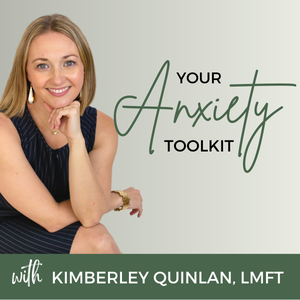 Your Anxiety Toolkit - Anxiety & OCD Strategies for Everyday
Your Anxiety Toolkit - Anxiety & OCD Strategies for Everyday
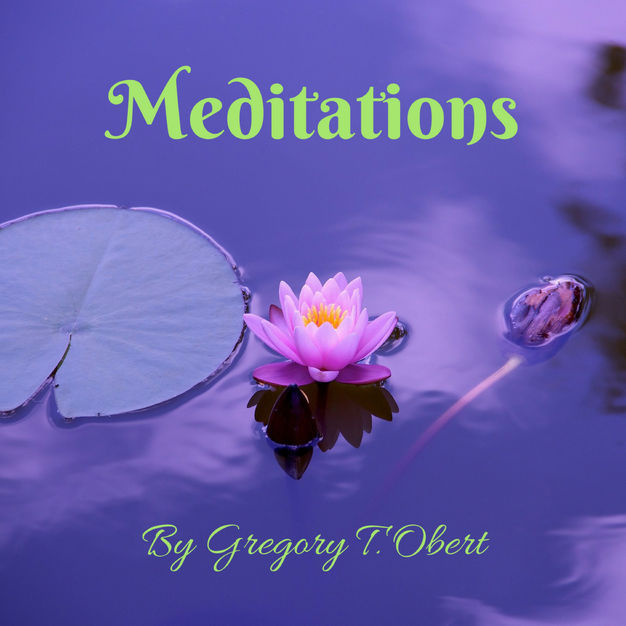 Meditations by Gregory T. Obert
Meditations by Gregory T. Obert
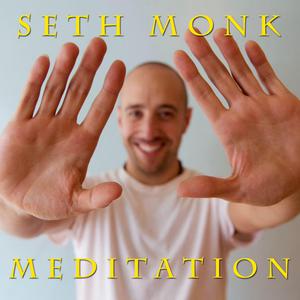 Seth Monk Meditation
Seth Monk Meditation
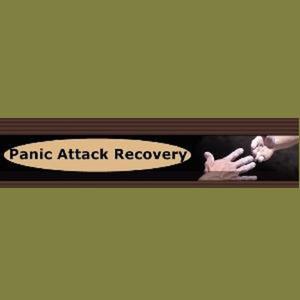 Anxiety, Stress and ADHD Recovery including Mental Health Support
Anxiety, Stress and ADHD Recovery including Mental Health Support
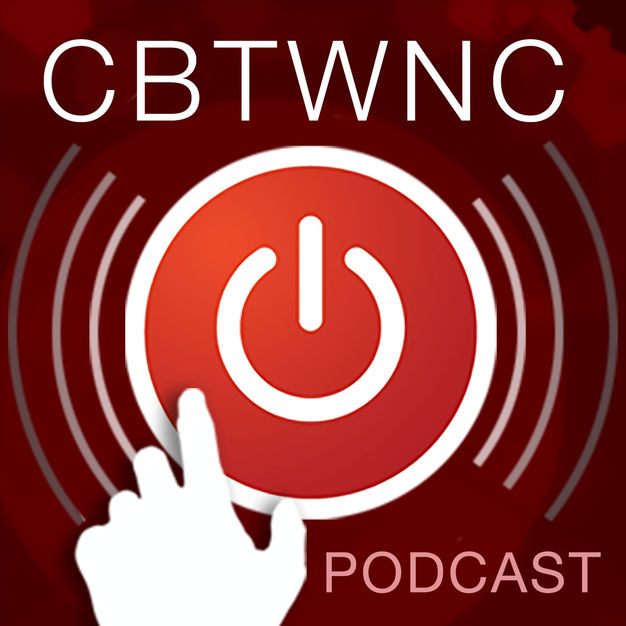 CBT Radio
CBT Radio
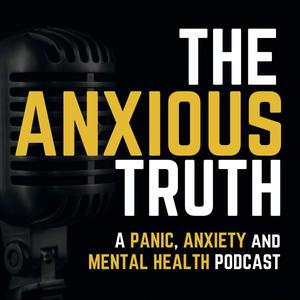 The Anxious Truth - A Panic, Anxiety, and Mental Health Podcast
The Anxious Truth - A Panic, Anxiety, and Mental Health Podcast